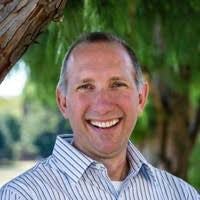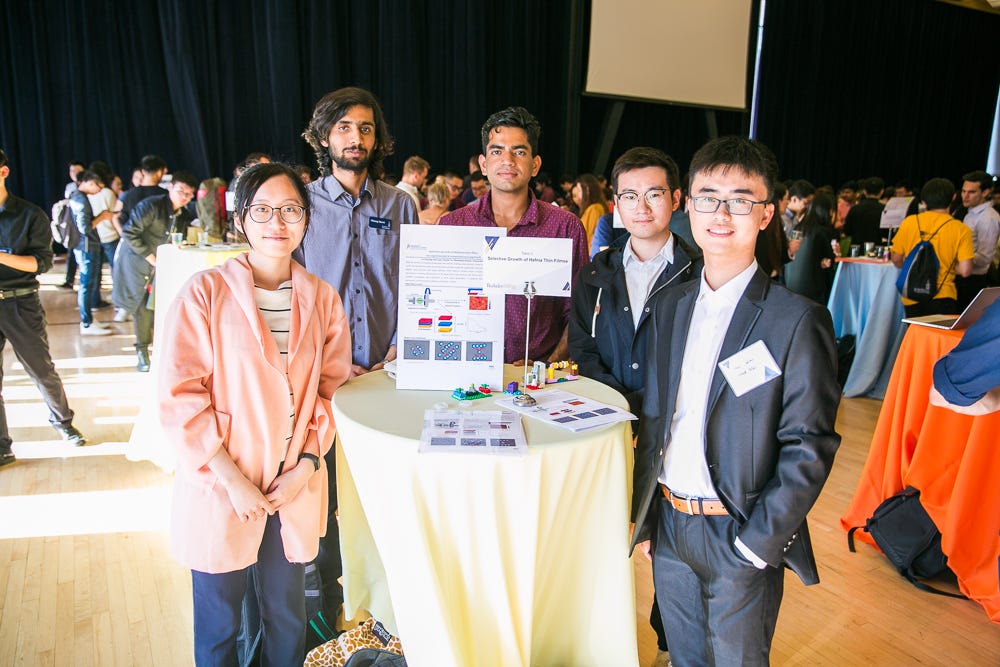Edited by Ashley Villanueva
Capstone advisors play an integral role in the success of the Berkeley Master of Engineering (MEng) Capstone experience program. Dr. Matthew Sherburne from the Materials Science and Engineering department won the MEng Faculty Capstone Mentorship Award. This recognition was awarded to the faculty Capstone advisor who best fosters intellectual independence, provides project support, and furthers professional development. Dr. Sherburne served as the Capstone advisor for the Selective Growth of Hafnia Thin Films team. We asked Dr. Sherburne questions about his experience as a faculty Capstone advisor and here’s what we learned.
What is your advising philosophy?
My philosophy on advising the MEng students has evolved to be more hands on with the students. This has been driven by the demands on the students’ time from the program. I have found with a little more guidance, the experience for the students and myself can be much more rewarding.What was the most memorable moment with your team?
I remember coming in on a Sunday to help the students with measurements on the scanning electron microscopy. The equipment is heavily used so this was when we could get time on the SEM. What was great about this was that I expected the student I was working directly with to be present, but the whole group showed up and was very engaged.How did the Capstone team advance this technology? What was their major accomplishment? How can next year’s team continue the work?
This project was in collaboration with a company. The scientist from the company met with the students and visited them here on campus. This close collaboration has yielded many new ideas about the project which will be implemented next year. Also the company is going to test grow the materials at their facilities, that the Capstone team developed.What’s unique about advising on a Capstone project, compared to advising on a more traditional course project or a research project?
In general, developing projects with industry tends to focus on a specific issue (more so than traditional research projects), with emphasis on short term, real-world application.What are some of the unique attributes of MEng students that you came across in your teaching or advising?
The MEng students are in general much more outgoing and engaging than the typical PhD. The MEng students know they only have nine months to gain as much knowledge as they can, so they are very eager to learn in both their coursework and Capstones projects.What advice would you give to faculty who’ll be advising on a Capstone project for the first-time next year?
Set realistic expectations for what the MEng students are going to accomplish on the Capstone, given their already heavy course load.
About Dr. Sherburne’s Capstone team:
Selective Growth of Hafnia Thin Films
Gate dielectric — HZO Team: Nisarg Barot [MSE], DJay Kamat [MSE], Ce Ouyang [MSE], Hao Lan [MSE], Xiaolu Yu [MSE] Project Description: With the advent of technologies like machine learning, data analytics, virtual reality, and augmented reality, the demand for greater processing power and data storage has significantly increased. Devices are getting smaller, more powerful and increasingly energy-efficient. Team Selective Growth Group is working on exploiting the ferroelectric switching characteristics of the latest high-k gate dielectric like Hafnia thin films. This problem will be addressed by two distinct yet synergistic approach: computational modelling and experimental. Our goal is to combine computation and experiment to drive rapid optimization of enhanced dielectric, piezoelectric, pyroelectric or electrocaloric responses and figures of merit. Connect with Dr. Sherburne.MEng Faculty Capstone Mentorship Award: Matthew Sherburne was originally published in Berkeley Master of Engineering on Medium, where people are continuing the conversation by highlighting and responding to this story.

